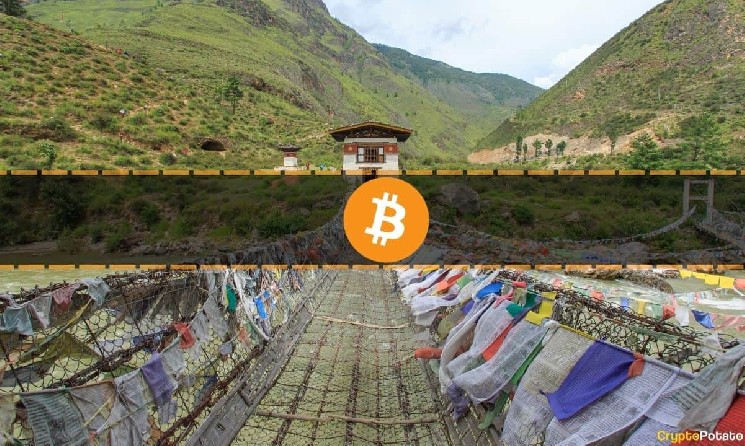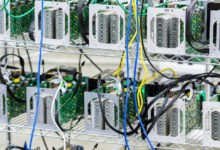Has Bhutan Been Quietly Mining Bitcoin Since 2017? (Report)

The Kingdom of Bhutan – a landlocked country situated in the Eastern Himalayas – has reportedly used its renewable sources of energy to run a bitcoin mining operation for years. A government representative said the process started when BTC was worth around $5,000. It is worth noting that the primary cryptocurrency reached that level for the first time in October 2017.
Another country that has done so is El Salvador. The Latin American nation, which became the first to make bitcoin legal tender inside its borders, has started mining BTC with power harnessed from volcanoes.
Bhutan’s Secret BTC Forays
According to coverage by Forbes, the Himalayan country has been using its vast hydroelectricity resources to establish a state-owned bitcoin mine without revealing it to the public. However, a government representative supposedly said the nation had started mining BTC “a few years ago as one of the early entrants when the price of bitcoin was around $5,000.”
Despite not revealing the exact timeline of when the nation hopped on the bandwagon, one could give certain suggestions. The price of the leading digital asset reached $5K for the first time in October 2017 and remained above it until November 2018, when it dropped below $4,000. BTC reclaimed that level in April 2019 and only briefly slipped below that level during the COVID-19 pandemic.
As such, it’s safe to assume that the Bhutanese government has been involved with BTC mining for at least three years.
It remains unclear why the lawmakers have not disclosed the forays to broad society, where the mine is located, or whether it has turned a profit.
The report further revealed that the Bhutanese government has partnered with the Nasdaq-listed mining company Bitdeer. An investor at the company shed more light on the collaboration:
“We expect to generate 100 MW out of the 550 MW power supply from Bhutan, where the construction of the mining data center is expected to begin in the second quarter of 2023 and complete in the third quarter of 2024.”
Another factor showing that the Asian nation has launched such a BTC project is its massive purchase of computer chips. Forbes claimed it imported such items worth $193 million in the past few years.
Some believe it is high time the Bhutanese government discloses its effort to locals. Others, like a former international advisor, whose name was not identified, think the country should be utterly cautious due to the risky nature of cryptocurrencies, and more specifically, bitcoin:
“It’s concerning that Bhutan’s resources have been invested in a secretive manner in a highly volatile and risky investment which has a big environmental burden.”
Why Mining BTC?
One main reason behind the BTC mining project could be the vast resources that the country has and the hydropower capacity generated from the numerous local rivers. Jaran Mellerud – analyst at Luxor – supports that thesis:
“It’s no surprise that entities are mining Bitcoin in Bhutan. The mountainous country has a massive hydropower capacity compared to its small population and produces a similar amount of electricity per capita as the United States – a much wealthier country. This cheap, stranded hydropower is undoubtedly alluring for miners whose sole job is turning undervalued electricity into bitcoin.”
In fact, Bhutan produces so much electricity that it exports around 75% of its annually generated amount to its western neighbor – India – during the rainy season when the rivers are overflooding.
Mining BTC might turn profitable for the country if the asset’s price surges in years and benefit the region. The move could also give Bhutan an upper hand in the case of global adoption of the cryptocurrency and its eventual development on the trade scene.
El Salvador is Another Example
When speaking about the correlation between bitcoin and countries, one should mention El Salvador. The Central American nation, led by President Nayib Bukele, embraced the asset as legal tender in 2021 and announced plans to mine BTC using energy harnessed from local volcanoes.
It also designed a high-tech town called “Bitcoin City,” which will employ the primary digital asset as official currency. It will be located close to Conchagua and Tecapa volcanoes and use their geothermal energy to power itself.
The futuristic urban project recently won an international award for its architecture and interior design.






 Bitcoin
Bitcoin  Ethereum
Ethereum  Tether
Tether  USDC
USDC  Dogecoin
Dogecoin  TRON
TRON  Cardano
Cardano  Chainlink
Chainlink  Bitcoin Cash
Bitcoin Cash  LEO Token
LEO Token  Stellar
Stellar  Hedera
Hedera  Litecoin
Litecoin  Monero
Monero  Dai
Dai  OKB
OKB  Cronos
Cronos  Ethereum Classic
Ethereum Classic  Gate
Gate  VeChain
VeChain  Cosmos Hub
Cosmos Hub  Algorand
Algorand  KuCoin
KuCoin  Stacks
Stacks  Tether Gold
Tether Gold  Zcash
Zcash  Theta Network
Theta Network  IOTA
IOTA  Tezos
Tezos  TrueUSD
TrueUSD  NEO
NEO  Polygon
Polygon  Ravencoin
Ravencoin  Decred
Decred  Dash
Dash  Zilliqa
Zilliqa  Qtum
Qtum  Synthetix Network
Synthetix Network  0x Protocol
0x Protocol  Basic Attention
Basic Attention  Siacoin
Siacoin  Holo
Holo  DigiByte
DigiByte  Status
Status  Nano
Nano  Enjin Coin
Enjin Coin  Ontology
Ontology  Hive
Hive  Waves
Waves  Lisk
Lisk  Pax Dollar
Pax Dollar  Steem
Steem  Numeraire
Numeraire  BUSD
BUSD  NEM
NEM  Huobi
Huobi  OMG Network
OMG Network  Bitcoin Gold
Bitcoin Gold  Ren
Ren  Bitcoin Diamond
Bitcoin Diamond  Augur
Augur  HUSD
HUSD